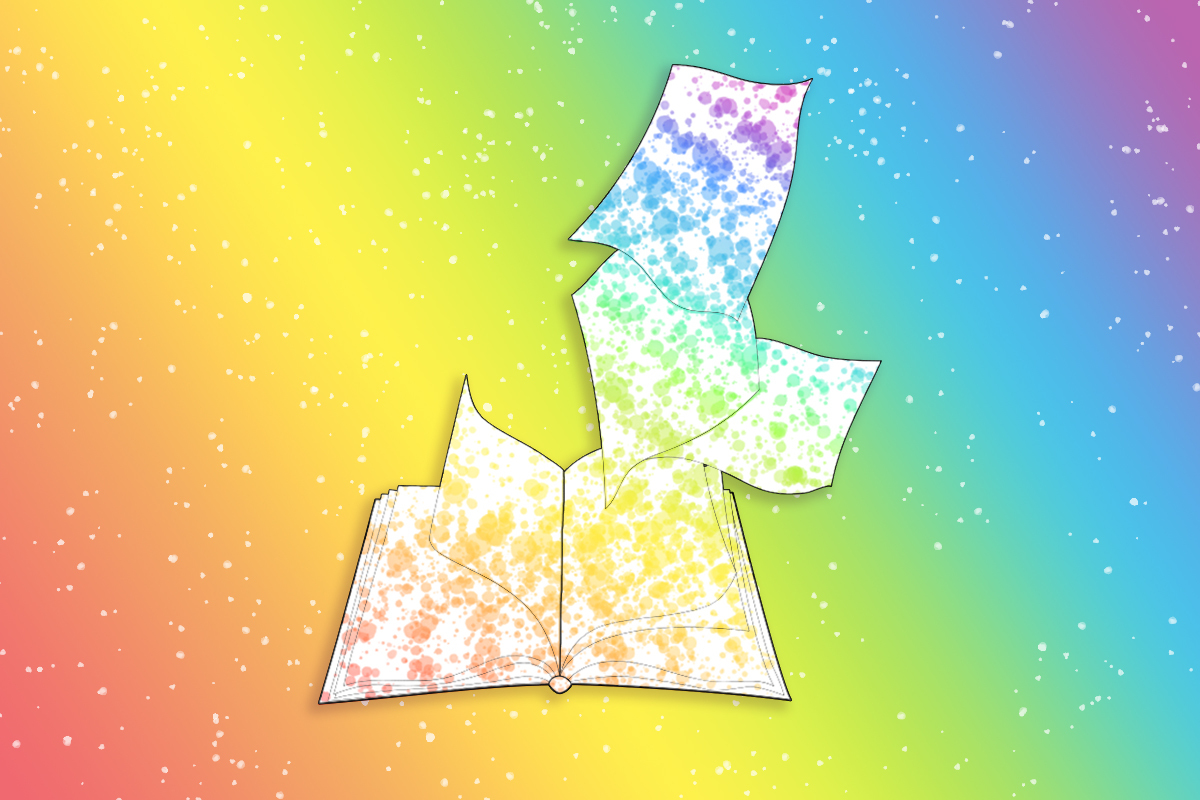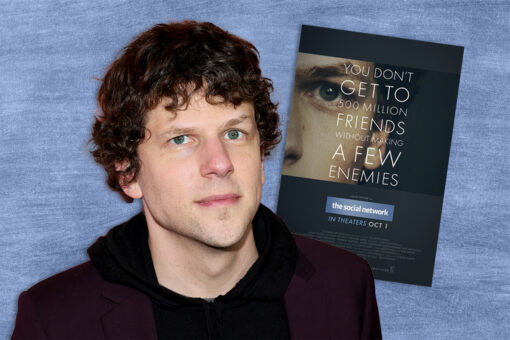In 1920, a rabbi invented a way to avoid small talk.
Okay, that probably wasn’t his only motive.
When Rabbi Moshe Menachem Mendel Spivak proposed the idea of Daf Yomi — reading a page per day of the Talmud until you had completed the entire Talmud, taking approximately seven and a half years — he was seeking community and a way to unify the Jewish people.
“What a great thing!” he explained to delegates of the First World Congress of Agudath Israel. “A Jew travels by boat and takes gemara Berachot (the first tractate of the Talmud) under his arm. He travels for 15 days from Eretz Yisrael to America, and each day he learns the daf. When he arrives in America, he enters a beis medrash (a Jewish study hall) in New York and finds Jews learning the very same daf that he studied on that day, and he gladly joins them. Another Jew leaves the States and travels to Brazil or Japan, and he first goes to the beis medrash, where he finds everyone learning the same daf that he himself learned that day. Could there be greater unity of hearts than this?”
After being proposed by several other rabbis, nearly 600 Congress delegates enthusiastically accepted the concept, and on the first day of Rosh Hashanah 5684 (or, September 11, 1923), the first cycle of Daf Yomi began.
Although the tradition of Daf Yomi is most widely practiced by members of the Orthodox community, Jews of all backgrounds and movements participate. When a new cycle of Daf Yomi began this past January, many marginalized Jews — such as LGBTQ+ people, people of color, and disabled people — took on the practice in order to find similarities with their modern experiences in these ancient texts and ways to grapple with the Talmud’s more controversial subjects.
Social media makes connecting with other Jews participating in Daf Yomi easier than ever, especially those outside of the community you’d usually interact with in person. I was able to talk to some Twitter users on their experience participating with Daf Yomi through hashtags like #QueerDafYomi, podcasts, and Discord servers. These interviews were conducted before the COVID-19 pandemic rendered in-person text study and places of worship unable to continue face-to-face, and the value of virtual connections rings even more meaningful now.
The Twitter user @Green_With_Enby, creator of the #QueerDafYomi hashtag, was raised in a Modern Orthodox Jewish environment and attended a Jewish day school. After feeling distanced and excluded from their community due to being queer and interested in social justice issues, they took “a pretty long break from Jewish learning.” Now, as a queer Jewish adult, they say they’re ready to return to the traditions that they loved in their childhood, including Daf Yomi.
“Daf Yomi was a really cool opportunity to begin reading in my own interpretations/humour in the Talmud,” they said over Twitter DM. “I wanted to finding room in the Jewish tradition for radicalism, socialism, revolution, Queerness, social justice, wealth redistribution, etc.”
“The goal of all this wasn’t just to be slightly irreverent,” they added. “I’m tired of being erased from the text. Rabbis interpreted texts according to their experience and their worldview and I intended to do the same. Talmud should be democratized. Many marginalized folks including women, LGBTQI2S+ people, disabled individuals, etc. have been completely excluded from exegesis and interpretation. Our absence shows. And as a result, there’s a lot in the text that is hurtful, difficult, tokenizing, othering, or straight-up inaccurate. Making room for the marginalized in Judaism is extremely important to me.”
Although they only joined Twitter last fall, @Green_With_Enby said they’ve already gotten a lot of positive feedback from other marginalized Jews. “What began as a project to reconnect myself to my heritage ended up growing into something that allowed others to connect as well. […] Even non-Jews are reaching out to me about how meaningful this project is to them — actively mining religious texts for queer-positivity (and general inclusivity) addresses the alienation many of us have felt.”
Part of Daf Yomi, however, is grappling with ancient ideals in modern times. “As with any text (especially ones as old as the Talmud), there will be parts that are contradictory, offensive, and/or infuriating. But for those of us who are engaging with the tradition today, we have a responsibility moving forward to think critically about which messages ought to be authoritative. There’s room for greater inclusivity, there’s room for disability justice, there’s room to affirm and embrace Queerness — we just have to look for it. One of my favourite quotes (from Pirkei Avot aka Ethics of the Father) is ‘Ben (son of) Bag Bag said: Turn it [the Torah] over and over for everything is in it.’”
Twitter user @xaihowareyou has been studying the Talmud with a queer beit midrash for a few years, and wants to become a Talmud teacher who “could represent queer and trans folks in discussions about halaxa.”
She started her podcast, Xai, How Are You?, on Patreon as a way for her to make income as a recently seriously disabled person. She creates the podcast with her partner, and they talk about “all the gay stuff in the Talmud, politics, and whatever else tickles our fancy.” She says she particularly loves discussing the Talmud through a podcast format, because it bears similarities to the “old-fashioned” way of learning the Talmud, when it was an oral tradition.
@xaihowareyou loves seeing all the Daf Yomi memes and other ways queer Jews are connecting on social media. “I think queers communicate totally transcendent truths through memes and humor and camp. So bringing the Talmud conversation to Twitter and other digital platforms gives our queer forms of midrash a chance to shine.”
@justsayXtian says he started a Daf Yomi Discord server (a community app like a hybrid between a forum and a group chat) by accident after tweeting to gauge any interest in forming an online study group. “I thought a couple people might respond and we’d have a group DM or something, but there was a lot more interest than that. So I started the Discord server, and it grew very rapidly. Way more than I was expecting. I think we have a little over 500 members now.”
“I don’t know that I’d really be able to do it without the resources and interactivity that modern technology provides. I do all of my reading online — mostly using the Steinsaltz Talmud on Sefaria, with occasional references to other resources to clarify something or seek out other commentary. I use this site to translate words if I want to get a little more depth on a translation, and I get daily emails from My Jewish Learning that provide a broader perspective from people who have studied before.”
While it’s now a moot point as synagogues have shuttered their doors during the pandemic, @justsayXtian says even under more normal circumstances, he probably wouldn’t be able to get to a synagogue daily for in-person Talmud study. “The social media aspect is HUGE. Even if I could [go to a synagogue], I’d be studying with a small group. Instead, I have 24-hour access to a massive study group of hundreds of people, with different perspectives and backgrounds, working together to try to deepen understanding.”
Twitter user @shxmot felt unsure in the beginning about studying the Daf. “To be honest, at first I really wasn’t sure if I’d be participating properly in Daf Yomi. I knew the cycle was restarting, and I’ve always wanted to learn more Talmud but, aside from studying a few well-known sections, I had found the sheer size intimidating and I’d been unsure if, as a queer transsexual, it would really be for me. But Daf Yomi was a straightforward way to begin: read the first page of Brakhot today, and the second tomorrow, and see what happens. As it turns out, I found the first page so compelling, and the practice of reading one page a day so helpful, that I haven’t stopped yet.”
They added, “Every Jewish text study group I’ve participated in before, I’ve been the only person, or one of very few, trying to read the texts from a queer or trans or disabled perspective. This is so different. There’s whole groups of us reading ourselves into and out of these texts with respect for the tradition and a desire to make something new. It’s amazingly energizing, and even though it is virtual, I feel like I’m getting to know the other people posting in them. I read bits and say ‘ooh, i need to talk about this with @green_with_enby’ or ‘i wonder if #disabilitydaf has a good read on this.’”
The extensive nature of the Daf Yomi is one of its most interesting — and intimidating — aspects. Undertaking the tradition provokes participants to imagine a world seven and a half years from now, and their place within it. And Talmudic study relies on discussion, debate, deliberation, and multiple perspectives. So if you’ve started off on such a lengthy journey, it certainly helps to have some companions along the way — even if they’re just with you through a screen.
Header image design by Grace Yagel.



